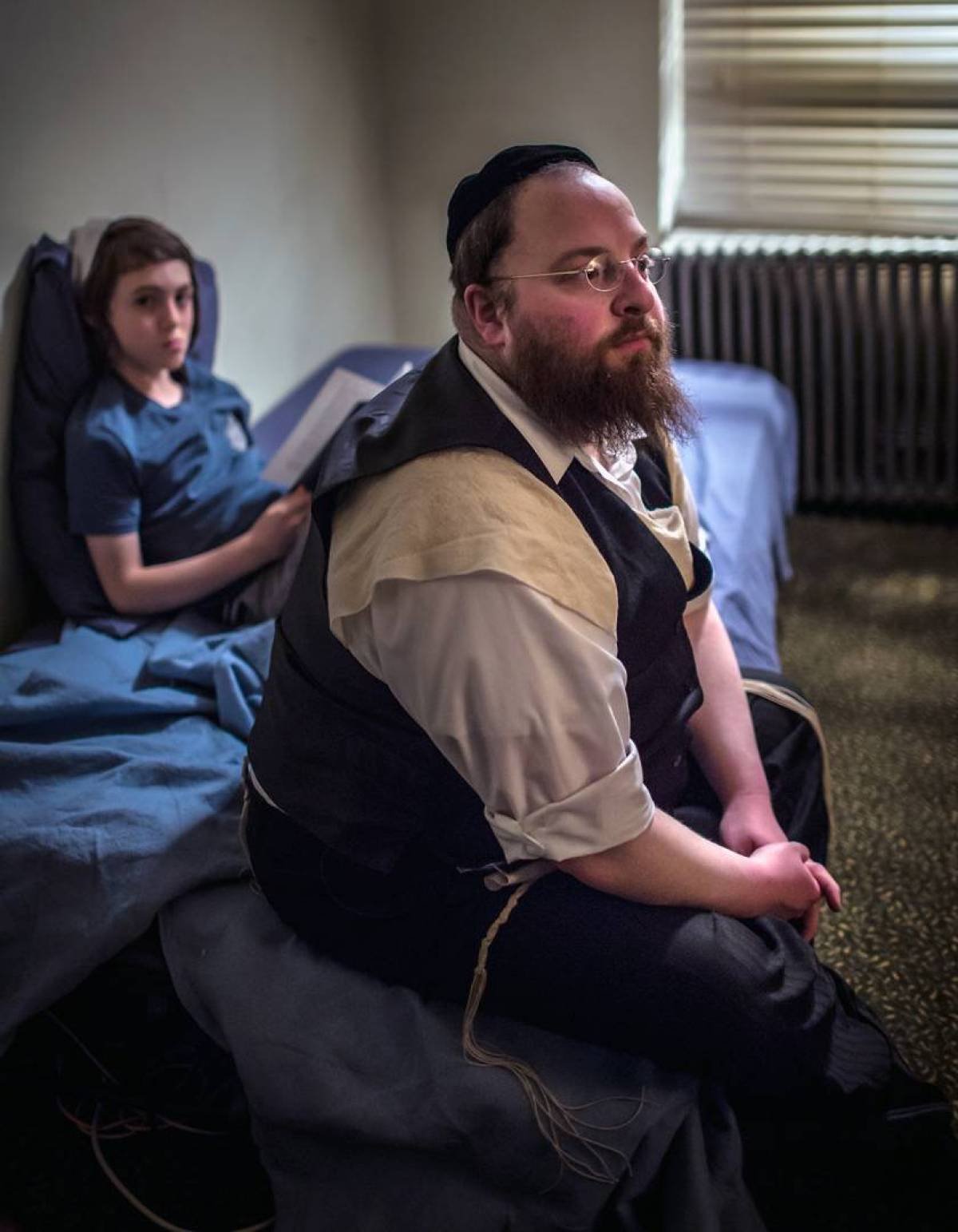Joshua Z Weinstein’s mom had some blunt wisdom for the young filmmaker when he told her he wanted to make Menashe. “That sounds like a bad idea,” she said.
“I love that my mom was honest,” says Weinstein, who put any expectations aside and pressed on anyway with the micro-budgeted feature. “If I share something new about humanity,” he reasons, calling the Georgia Straight from Toronto, “then that’s all I ask for.”
Well, unless you’re a Hasidic Jew in Brooklyn’s extremely insular Borough Park district, chances are that Menashe, opening Friday (August 11), shows you something new about humanity. If you are a Hasidic Jew, you might be a bit nonplussed by this fictional, 90-minute peek into the community. In fact, the existence of Menashe—about a sweet, if generally oafish widower fighting Orthodox custom to win custody of his 10-year-old son—is something of a miracle. As he was determined to cast nonactors, Weinstein’s first hurdle was already insurmountable.
“Being involved in movies and being involved in modernity is so outlawed in this world,” he elaborates. “The Hasidic Jews sold out two of the biggest sporting stadiums in Queens, where the Mets play and also where the U.S. Open is played, to have an anti-Internet rally. Which is basically a rally against the Internet, TV, modern music, WhatsApp… They can sell out better than Beyoncé sells out, like, against Beyoncé. That’s how wrong it is to be in this movie.”
Still, remarkably, Weinstein managed to cast his film entirely within the ultra-Orthodox community. The film’s lead, Menashe Lustig, actually happens to be something of a YouTube sensation for his Yiddish standup routine. Ruben Niborski plays his son in a narrative that closely mirrors Lustig’s real life. “Ruben’s sweetness just melted Menashe’s heart,” says Weinstein, “so that relationship, how palpable it was, and how emotional it was, I knew that would carry the film no matter what. There’s a scene where Menashe had to slap him toward the end of the movie, and he just couldn’t do it. And Ruben was like, ‘Just slap me, Menashe!’ I think he was nine when we started filming and it was like, ‘What? I get to be in a car accident? I get to fall off a chair? I get slapped? Cool!’ ”
Meanwhile, Weinstein reports that “every trick in the book” was employed to get performances from a supporting cast that was way out of its element. It’s a further miracle that the film works so well, eventually being singled out as one of the buzziest discoveries at the Sundance festival. “Of course, I’m entirely shocked,” says Weinstein, himself a born-and-bred Brooklynite whose family came from the shtetls of Poland. “I made this movie, really, for my own intellectual curiosity and my humanistic approach to filmmaking, where I wanted to share a story that I’ve never seen before. And I loved how difficult it was going to be to make it. The fact that people actually care to watch? I could never ask for a greater privilege than to share it with everybody.”
Georgia Straight, August 2017
